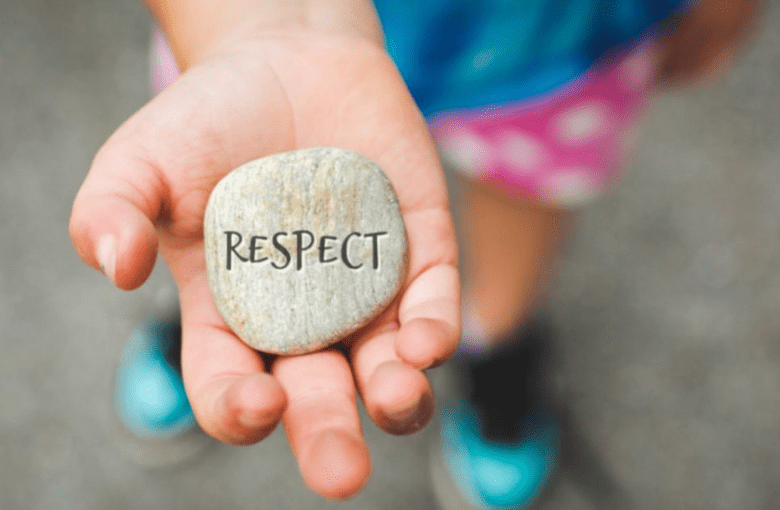“Children are human beings to whom respect is due, superior to us by reason of their innocence and of the greater possibilities of their future.” ~ Maria Montessori
Anyone who has experience with Montessori education knows that there’s something different about the “Montessori Way.” Montessori education is more than just academics. There is a social aspect to the Montessori classroom that is just as important. Our children learn to be respectful and kind, get along with each other, and be a part of a community.
Whether at school or at home, there are several ways to help your child learn respect and feel respected:
1. Talk to your child like the grownup you want them to become. In their early years, baby talk is fine. But once your child is no longer a toddler, it’s a good idea to leave some of the baby talk behind. Speaking with them like adults helps boost their confidence and improve their morale.
2. Give them your ear. It may seem obvious, but in their efforts to guide their children, many parents forget to listen. Your child can provide valuable feedback about what they are feeling, which can further help you, as a parent, make better decisions about their wellbeing.
3. Don’t interrupt. Let your child to finish the project they are working on or the game they are playing without interruptions. Allow them to speak and finish their thought, even if it takes awhile. Notice when they are concentrating and let them complete a task before you switch their attention to another activity.
4. Offer them a role. Children should feel like they have a place in their school, in their family and in their other activities. However, it’s important to treat them more like partners in an enterprise than employees. Instead of giving orders and making demands, start by asking for their help. Of course, in the end, you’re the boss, but if your children feel like part of a team, they’ll more enthusiastically embrace their role in the classroom and in the household.
5. Don’t laugh, offer praise. When your child makes mistakes – which they certainly will – be patient and encourage them. Let them discover their own mistakes rather than pointing them out. Those may be silly mistakes, but try not to respond with laughter, which can damage self-esteem and discourage them from participating. Instead, observe your child without judgement and encourage them to try, try, try again.
6. Demonstrate trust. One of the best ways to show respect for children is to show you trust them. Often that means giving them the freedom to make their own decisions and follow through with their own attempts. Instead of cleaning up their spilled milk or picking up their toys or clothes, try letting them know you trust them to do it by themselves. The more they do things by themselves, the more they will learn, and the more they will grow.
7. Give them space. Know how to prove to your child that you trust them? Give them a sense of privacy. Knock before entering their room and avoid talking about your children in front of other adults. This can be embarrassing for them and can foster a sense of betrayal.
One of the important differences between Montessori and a traditional education is the freedom it gives students to help structure their own lessons and work at their own pace. Underpinning that concept of freedom is the profound respect for the individual child that Montessori educators show students to nurture their education.
In her educational philosophy, Dr. Maria Montessori saw the need to treat a child with dignity and respect. At La Prima Casa Montessori, we follow Dr. Montessori’s philosophy by creating a respectful environment where your child can flourish academically while growing as a person.
You may also like
Four Ways to Make Gratitude a Part of Your Everyday Routine

